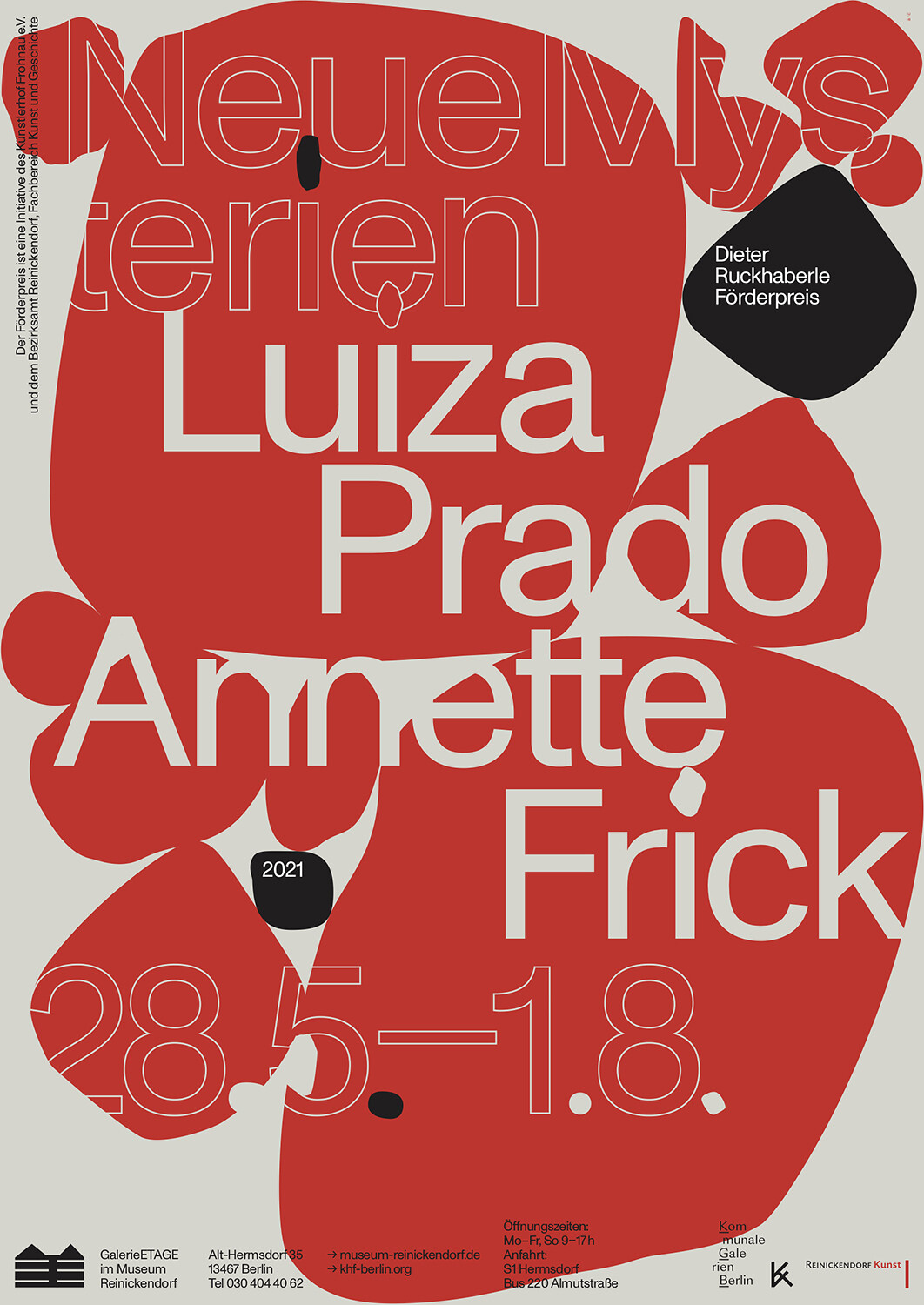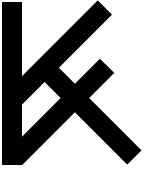May 28–August 8, 2021
Hubertusweg 60
13465 Berlin
Germany
Surya Gied is awarded Dieter Ruckhaberle Prize 2021, and an exhibition Neue Mysterien shows previous recipients Luiza Prado + Annette Frick.
Surya Gied: Dieter Ruckhaberle Prize 2021
Künstlerhof Frohnau (KHF) is delighted to announce that artist Surya Gied, born 1980 in Cologne, is the recipient of the Dieter Ruckhaberle Prize 2021. In her site-specific paintings, installations and drawings, often accompanied by videos and performances, Gied renders her source material—media images as well as biographical stories related to migratory experiences—into a mesmerizing and multidimensional formal and conceptual language, oscillating between abstraction and depiction, surface and space, subjectivity and fragmentated notions of the self.
The Dieter Ruckhaberle Prize is awarded to artists who in their work find innovative forms for addressing political subject matter. It has been initiated in 2019 by the art association Künstlerhof Frohnau in cooperation with Kunstamt Berlin-Reinickendorf. The award comes with a two months’ residency at KHF in Berlin, a production budget, an exhibition and/or publication. The jury has been in all three years composed of Antonia Alampi (director Spore initiative), Kaya Behkalam (director KHF), Dr. Cornelia Gerner (director Kunstamt Reinickendorf), Gabriele Horn (director Berlin Biennial) and Heike Ruschmeyer (artist). This year the open call of previous years was replaced by a system of nominations. Among the nominators were Christine Hill, Hassan Khan, Stefan Koppelkamm, Bonaventure Soh Bejeng Ndikung, Ahmet Öğüt, Natascha Sadr-Haghighian, Stefanie Schulte-Strathaus and Tirdad Zolghadr.
Exhibition: Neue Mysterien: Annette Frick & Luiza Prado
May 28–August 8, Monday–Friday, Sunday 9–5pm
Museum Reinickendorf Berlin / GalerieETAGE, Alt Hermsdorf 35, 13467 Berlin, Germany
Neue Mysterien will present the first two recipients from 2019 and 2020: Luiza Prado and Annette Frick.
Luiza Prado, born in Brazil in 1988, works on multimedia installations, comprised of video, objects and text, in which she examines to what extent different techniques of control, and especially birth control, have a continued influence on the hierarchies of gender, ethnicity, social class and national affiliation as defined by the colonial era.
Annette Frick, born in Germany in 1957, has been a photographic chronicler of the queer scene in Germany for decades and works with large-format b/w photographs, experimental films and self-published zines. Over the last three decades Frick has been exploring the photographic image as a means to not only document but also to think through and perform alternative ways of living and working along the social and cultural margins. The protagonists of Frick’s photographs and print works are the “masks of identity” of Berlin´s queer culture and the city’s changing architecture. The exhibition juxtaposes these two positions and contextualizes them with material from the archive of artist, cultural politician and curator Dieter Ruckhaberle. Here you can see a virtual tour of the exhibition and order the two limited edition publications that have been produced on this occasion.
The project has been supported by funds from the Berlin Senatsverwaltung für Kultur und Europa, the Ausstellungsfonds für die Kommunalen Galerien and the Fonds Ausstellungsvergütungen Bildende Künstlerinnen und Künstler.
Director: Dr. Cornelia Gerner
Curator: Kaya Behkalam
Production: Katja Hock, Setareh Shahbazi, Christopher Mylaeus, Ralf Sköries
About the Dieter Ruckhaberle Prize
The prize commemorates life and work of artist, curator and cultural politician Dieter Ruckhaberle. Since the 1960s Ruckhaberle was a leading figure of West-Berlin’s cultural scene. He tirelessly promoted and worked towards better working conditions for artists in Germany, always convinced that artistic freedom could only be guaranteed by an absence of economic pressure. Ruckhaberle co-initiated the IG Medien, a union for media related professions, and the Künstlersozialkasse (KSK), a subsidized health insurance for artists. He co-founded various art institutions such as nGbK and the Staatliche Kunsthalle, as whose director he served for many years. As an artist Ruckhaberle created an extensive body of work, both abstract and figuratively, in search of new poetic forms and positions of critical contemporaneity. He passed away in 2018 at his last major project: the Künstlerhof Frohnau, an artist village on the Northern outskirts of Berlin, which offers affordable studio spaces for artists since 1998.











